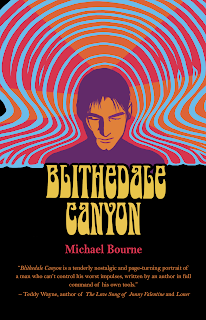I’m thrilled to host Edie Meidav .com on the blog today for her astonishing new book ANOTHER LOVE DISCOURSE. I’m thrilled to host Edie Meidav on the blog today for her astonishing new work, ANOTHER LOVE DISCOURSE, about love, pandemic and hope. Edie is also the remarkable author of the novels Kingdom of the Young, Lola, California, Crawl Space, The Far Field, and strange attractions. Instead of the usual Q and A, we have something different! Edie has provided “an alphabet of answers to imaginable questions,” and it is so great I am setting it down here! Thank you, Edie
One Shard
An alphabet of answers to imaginable questions:
A: Toronto.
B. New York, Cuba, France, Nicaragua, Sri Lanka.
C. A former director of the MFA program at New College on Valencia Street in San Francisco, writer-in-residence at Bard College, and now at the UMass Amherst MFA program.
D. Sea monkeys.
E. Language indeed a virus.
F. Ms., The Village Voice, Guernica, Artweek, The International Literary Quarterly, The Kenyon Review, Terra Nova, The American Voice, New Letters, Conjunctions and elsewhere.
G. A Lannan Fellowship, a Howard Fellowship, a Bard Fiction Prize for Writers Under 40, Whiting research award, a Kafka Award for Best Novel by an American Woman, a Fulbright in Sri Lanka, Fulbright in Cyprus, Northern California Book Award shortlist, and other citations.
H. Books called editorial picks by the New York Times, the L.A. Times, the Electric Review, the Litblog Coop and elsewhere.
I. Overeducated women with a past; autodidact boys, occasionally scarred, often grown into men.
J. Ocean.
K. Children.
L. Unterzakhn; The Map and the Territory; looking for Tanizaki.
M. Shange, Angelou, Woolf, Hardy, Faulkner, Morrison, Kundera, Paley, Baldwin, Flaubert, Rushdie, Cavafy, Lorca, Cortazar, Transtromer, Vallejo, Stendhal, Ishiguro, Coetzee, Jackson.
N. Poetry.
O. Generosity.
P. Spanish and French, German and Sinhala, Hebrew, some Catalan, Greek, Portuguese, Italian.
Q. One obsessive score for each book.
R. The stress of routine.
S. Loss of the perceiving mind.
And I want to let the high praise speak of Edie’s novel!
In Edie Meidav’s mesmerizing new novel, A Lover’s Discourse, we are in a Roland Barthian world, a rich explosive text about a divorce and failed love, the longing for a fully mothered childhood, and the ways that working hard often succumbs one to a hellish isolation and distance from life, the over-riding question being: can we ever be “happy” in such an existential tumble? We are engaged in these abstract questions simply because Edie Meidav is such a gifted writer. Meidav is one of our truest writers, and I feel only deep and profound admiration for the uneasy ways she has chosen to tell a story of the heartbreak of being a mother of three children, left by her husband.
—Leora Skolkin-Smith, author of The Fragile Mistress and Stealing Faith
Edie Meidav’s Another Love Discourse shatters boundaries and expectations: her narrative voice—urgent, lyrical, raw—compels the reader into uncommon and intense intimacy. This powerful book will stay with you.
—Claire Messud, author of A Dream Life
Edie Meidav is one of my favorite contemporary writers, and this is her best book, in a success of very strong books. It's open, wounded, true.
--Rick Moody
Edie Meidav's Another Love Discourse is an uncategorizable triumph, and a gesture of radical intimacy with the reader, one of which Barthes would be proud.
—Jonathan Lethem, author of The Arrest






